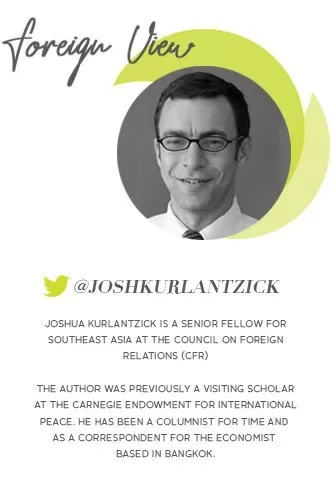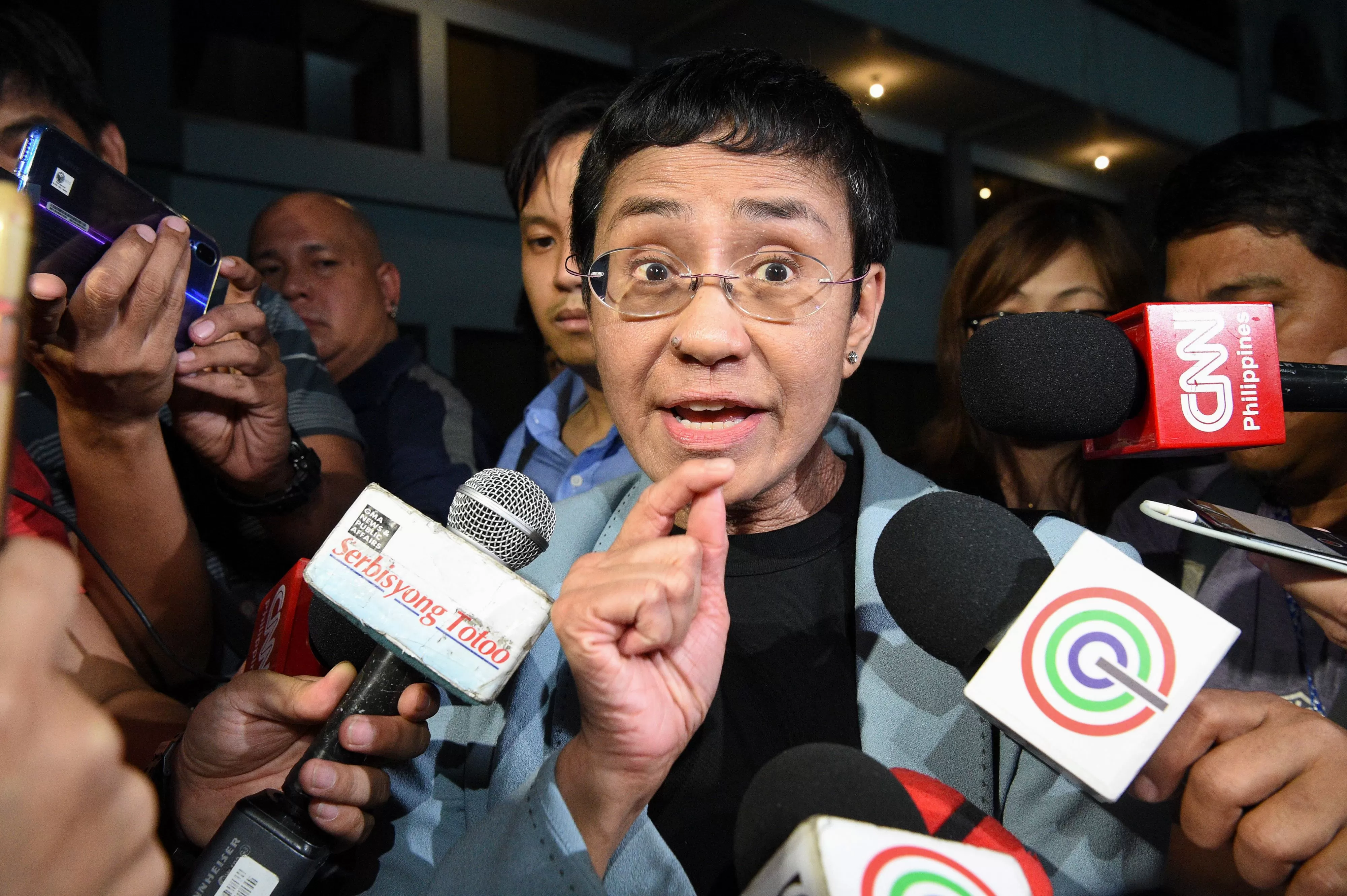 Yesterday (U.S. time), editor Maria Ressa, one of the most prominent journalists in the Philippines, and indeed in the world—she was selected as one of Time’s people of the year in 2018 and featured on its cover—was found guilty by a Philippine court on charges of cyber libel. The charges related to a story about the former chief justice of the Philippines’ top court. Reynaldo Santos Jr., who wrote the story, also was found guilty of cyber libel. Though the two were released on bail, they face up to six years in jail on the charges.
Yesterday (U.S. time), editor Maria Ressa, one of the most prominent journalists in the Philippines, and indeed in the world—she was selected as one of Time’s people of the year in 2018 and featured on its cover—was found guilty by a Philippine court on charges of cyber libel. The charges related to a story about the former chief justice of the Philippines’ top court. Reynaldo Santos Jr., who wrote the story, also was found guilty of cyber libel. Though the two were released on bail, they face up to six years in jail on the charges.
The charges are extremely controversial. The story Santos Jr. wrote actually was published before the Philippines even had a cyber-libel law, and Santos Jr. and editor Ressa were charged after Rappler, their publication, updated the article online to fix a typo after the law came in effect. The cyber-libel law is also easily used to try to silence independent journalists. And Ressa faces a load of other charges too, which seem designed to silence her and Rappler. The Guardian notes:
Ressa also faces another libel prosecution, two criminal cases alleging illegal foreign ownership in her companies, and investigations into her old tax returns. The various allegations made against Ressa could lead to about 100 years in prison.
After a career at CNN, Ressa, a dual citizen of the Philippines and the United States, now runs Rappler, one of the toughest, most groundbreaking, and independent reporting outlets in the Philippines, a country with a tradition of a vibrant press—and also of brutal crackdowns on journalists. Reporters Without Borders regularly ranks the Philippines as one of the most dangerous places in Asia to work as a journalist, and in 2009 the country witnessed what the Committee to Project Journalists has called the worst single massacre of journalists in history, when 34 journalists (and 58 people total) were slain in Maguindanao province. Journalists throughout the country are regularly threatened by local politicians and businesspeople, and often attacked.
Even given this history, since Rodrigo Duterte’s election as president in 2016, the situation for the press has worsened. Under Duterte, the Philippine government has worked to suffocate the free press more than under any Philippine president since dictator Ferdinand Marcos. For years Duterte has been targeting Rappler, which has aggressively reported on the massive number of extrajudicial killings and other abuses in Duterte’s drug “war.” And for years he has singled out journalists for verbal abuse, and suggested that journalists could be assassinated.
But overall, this effort against the press seems to have been ramped up in recent months, as the coronavirus pandemic has allowed Duterte—like many other illiberal leaders—to amass greater powers and crack down on all sorts of opposition. The legislature, controlled by Duterte allies, has passed an anti-terror law so broad it could be used to potentially detain a vast array of people without charges, including journalists. Last month, the Duterte administration effectively shut down ABS-CBN, one of the most important broadcast networks in the country, and one that also had reported independently about the president. Now, a guilty verdict against Maria Ressa, probably the most famous journalist in the Philippines and someone with a high-profile international legal team and extensive networks of allies around the world, must surely suggest to lower-profile journalists, and anyone in civil society in the Philippines, that no one in the country is safe.
Ressa’s case also illustrates the rapidly deteriorating climate for press freedom across Southeast Asia, where governments are backsliding from democracy, and cracking down on reporters in numerous ways—trends that have increased since the outbreak of COVID-19. In Myanmar, the National League for Democracy-led government has aggressively tried to curtail independent journalism, while autocratic governments like Vietnam have aggressively pursued writers and bloggers, and Cambodia’s government has destroyed most of the country’s independent press. Overall, in the past two years, Reporters Without Borders has reported declines in press freedom in many Asian states, including the Philippines, Myanmar, and Singapore. Since the COVID-19 outbreak, as The Economist reports, Indonesia and Malaysia, two of the freer countries in Southeast Asia, have been arresting people for supposedly spreading false stories about COVID-19, and the Malaysian government is investigating a reporter for the South China Morning Post for reporting on COVID-19.
Now, an emboldened Duterte, empowered by the COVID-19 emergency, is likely to take further steps to crush press freedom in the Philippines.
“Disclaimer: The author takes full responsibility on the content of this opinion”.



